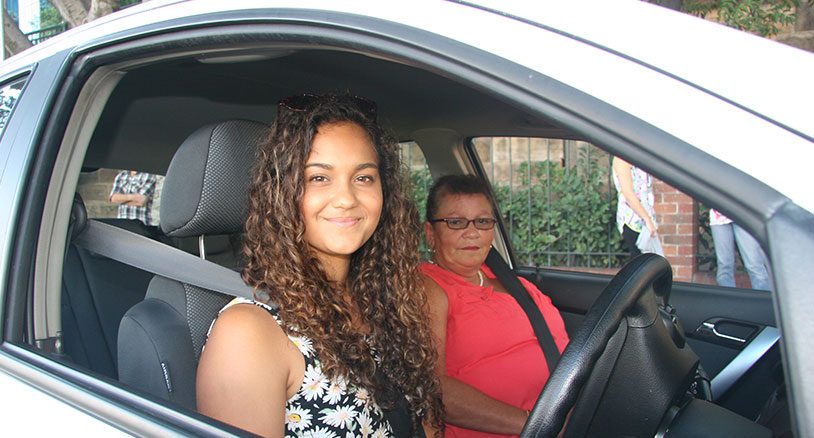
Funding boost for Driving Change
A pioneering project which is transforming the lives of young Aboriginal people by helping them obtain their drivers licence has been awarded more than $270,000 by the NSW Government.
The George Institute's Driving Change program was amongst the first recipients of the NSW Government’s new Community Safety Fund.
More than $150,000 is being given to the Taree Indigenous Development and Employment Ltd and $120,000 to the Kempsey Neighbourhood Centre to deliver the Driving Change program.
Professor Rebecca Ivers, from The George Institute for Global Health, welcomed the funding: “These are Aboriginal community owned programs delivered by Aboriginal people who take a leadership role in the local community in supporting young people through the licensing system. It is wonderful to see the NSW Government step up to support these strong community based programs and allow them to continue to deliver essential services
"Our research has shown that driver licensing leads to better education and employment outcomes for Aboriginal people, and programs such as these have huge impact for local communities.”
The Driving Change program is a community based driver licensing support program that the George institute developed and evaluated in 12 locations across NSW. Funded by AstraZeneca's Young Health Programme, Transport for NSW and NSW Health, the program has assisted more than 400 Aboriginal people across NSW to gain their driver licence by working in partnership with local community organisations.
Aboriginal Legal Services field officer Lou Stanton, who channels young clients through the Driving Change programme, said: "Taree has had a lot of success with the program over the past 2 years and I am so happy to hear about this funding as there is so much more great work we can do. The Driving Change program has transformed so many lives in my community"
NSW Member for Port Macquarie, Leslie Williams, who announced the funding, said: “Our community has identified that driving offences, including driving unlicensed, as a significant problem in the young Indigenous population,” Mrs Williams said.
“This program directly targets the issue through education and practical assistance to divert those most at risk from entering the criminal justice system.”
Media Enquiries
Julia Timms
The George Institute for Global Health (Sydney HQ)
+61 410 411 983 jtimms@georgeinstitute.org.au



